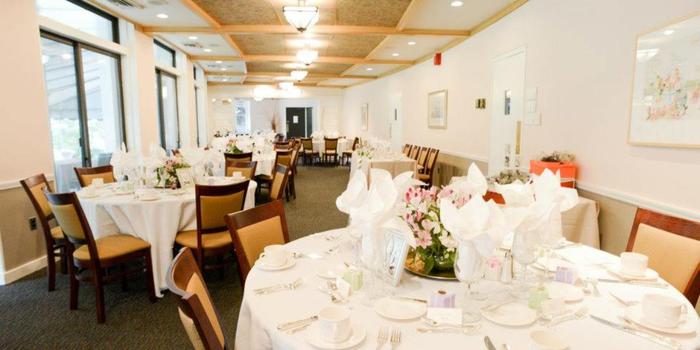On Friday December 2, LILAC invited Marissa Patterson (’08 Biology & Anthropology Major) back to campus to talk about her path after Bryn Mawr and her job as an FNP at Family Practice and Counseling Network. I attended both the Wyndham lunch and a one-on-one informational interview with Marissa. This opportunity to learn more about the nursing career from an alum’s experience was special to me because I hope to pursue nursing after Bryn Mawr. Marissa had also commented on one of my Banter Blog posts, and I referred her to LILAC head Katie Krimmel to arrange for Marissa to be invited to campus. 
Marissa Patterson is a family nurse practitioner working in community healthcare. She graduated Bryn Mawr in 2008 with a degree in biology with a concentration in neural and behavioral sciences and a minor in Anthropology at Haverford. She was very interested in health care and planned to go to medical school. Her first job after college was an Americorps program in a nurse practitioner managed health care center and she realized that the NP field was a better fit for her. She declined her medical school admissions and spent a year taking a few prerequisites. She completed an accelerated bachelor’s degree in nursing at Johns Hopkins and a masters in family practice nursing at Yale. She previously worked at Planned Parenthood and is currently working at that same NP run clinic that inspired her to this field in the first place!
*(Bio provided by LILAC)
To my surprise, many Bryn Mawr students attended the LILAC lunch. It was always my assumption that Bryn Mawr students were not interested in nursing, but perhaps Marissa was able to convince them otherwise. Marissa recalled her college days doing biology research under Earl Thomas and summers of research at Stanford. After she graduated Bryn Mawr, she landed a research job at UPenn, but ended up quitting after 2 months because she disliked transcribing papers in a windowless room all day. She joined Philadelphia Healthcorps and got placed at Family Practice and Counseling Network in Southwest Philly (where she now works again). There she worked as a social work assistant while applying to medical schools to become a doctor. She soon realized that the nursing career more fit her view of an ideal healthcare model emphasizing holistic care. After talking to both doctors and nurses at different stages of their careers, she decided to pursue nursing.
Here are some other tips Marissa offered to Bryn Mawr students:
- The perception versus reality of nurses and doctors could not be more different. In the primary care level, nurse practitioners have the power to do almost exactly what doctors do. TV and mainstream media further enforce an incorrect image of what nurses and doctors do.
- Talk to people in the field at different stages of their careers.
- Taking time off after college can really expose you to a different way of living that isn’t just studying.
- Working is very different from being in school. Grad school is very different from being in undergrad.
- Personal emails and follow ups through networking and connections may get you closer to the job than just sending out resumes and job applications to job portals.
- If you are not sure you can commit to a masters degree or doctorate, it is not a bad idea to consider completing a bachelors in nursing first.
